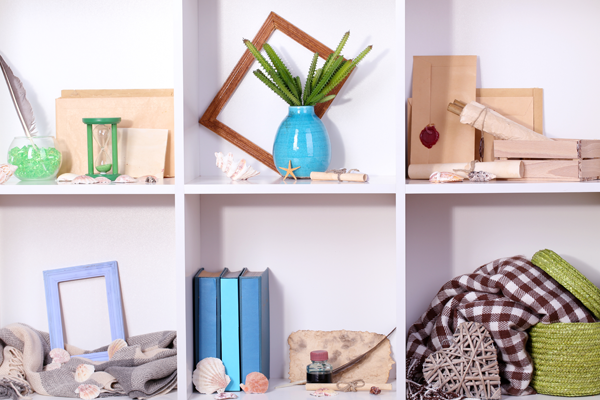(Dis)organise your life
Between being organised or unorganised, it seems logical to prefer order, but in this as in many other things in life, balance is key.
KNOW YOURSELF
Share

Being obsessively organised restricts a person’s life considerably; it can even interfere in their life because of the time it takes up and the suffering it produces. On the other hand, extreme untidiness is paralysing, as it means investing time and effort in coping with chaos, instead of on daily tasks.
Being organised is something you learn, it is a habit you usually acquire in childhood and in the family environment. Some children acquire it more easily than others, and the example their parents set them affects this learning process. When children grow up in a tidy home, see their parents looking after the harmony that comes from this tidiness and are involved progressively, they usually become organised adults, both around themselves and in their minds.
There are many advantages of keeping tidy, not only having easy access and saving time to cope with daily life; keeping things organised also encourages a feeling of control and security, and reduces stress. This is obtained with willpower and systematic routines to control untidiness when it happens now and then.

But tidiness is not only a matter of cleaning and hygiene. Things can be organised by colour or size which will make them look better, but when you’ll need them it won’t be easy to access them, because the criteria used to tidy them is irrelevant to their use.
The key is to keep things organised depending on the importance of each one, their use and how much and when they are needed. There is no unique way to classify things; it’s more a question of efficiency than cleanliness and tidiness.
ORGANISED MESS
Some people keep an ‘organised mess’ in their lives. These people seem to have everything disorganised but can find and access everything they need quickly and without effort. Sometimes they find chaos when they decide to tidy up or when someone does it for them, and when they cannot remember where they kept their things.
For things to be organised they must have their own place, and this means constant decision-making about what to keep and what not to. This is not an easy task, as accumulating objects is quite a common habit, both objects that haven’t been used for a long time and recently bought objects which don’t yet have a use. This habit can break the necessary balance between available space and the amount of objects you want to keep.
PROCRASTINATION OR LEAVING THINGS FOR LATER
Another big enemy of tidiness is procrastination, that is, the habit of putting off tasks or activities which must be done and preferring to do more pleasant and usually irrelevant ones. When you don’t know where to put something, you usually leave it ‘temporarily’ somewhere inappropriate, and there it stays for a long time.
The root of this behaviour is the fear of not making a correct decision, of being imperfect. Reviewing the list of possible catastrophes if you don’t make the correct decision generates fear and paralyses you. To control this effect, it is a good idea to force yourself to do things immediately and one by one.
Breaking a task up into small steps will make it easier; if you have a lot to tidy up you will be overwhelmed and you’ll put it off, but if you decide to put two things away, you’ll probably get it done.
OBSESSIVE TIDINESS
Extreme tidiness loses all these virtues and can turn life into constant suffering. An obsession for neatness can be pathological and may prevent you from carrying out normal daily activities such as arriving at work on time or appropriately assuming the majority of daily responsibilities.
This happens when you ‘need’ to have certain behaviours compulsively, in a strict order, and if it isn’t possible, you suffer high levels of anxiety. In these cases you should consult a mental health specialist.






